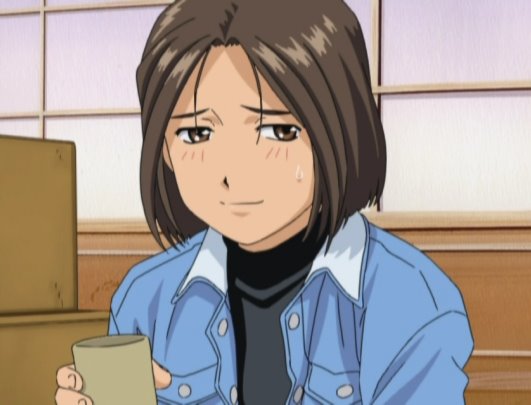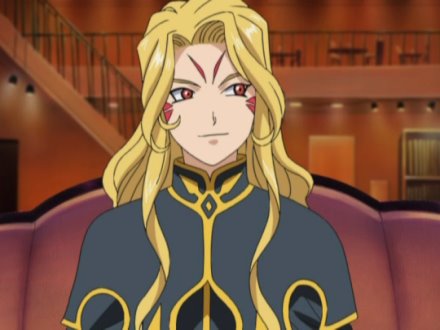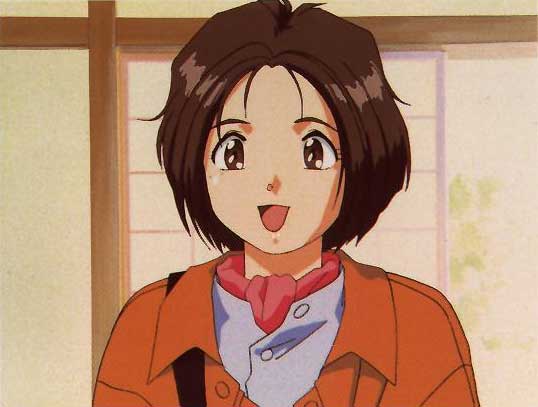June 22, 2007
A word I like a lot is ichikabachika. It's usually translated as "sink or swim" but sometimes as "do or die". It sounds neat; rolls off the tongue nicely (because both "chi" are actually pronounced as "ch").
I wondered what I could learn about it from the full spelling. It's this: 一ã‹å…«ã‹
Two kanjis and two hiraganas. 一 ichi means "one". 八 hachi means "eight".
ã‹ ka is a particle. One use of it is to tag entries in a list. The example given for that usage is Kore ka, sore ka meaning "this or that". So ichikabachika literally means "one or eight".
And yet another colloquial translation would be "In for a dime, in for a dollar". (Does anyone say that anymore? We said it when I was a kid, but these days a dime can't even buy you a package of chewing gum.)
Posted by: Steven Den Beste in Japanese at
09:24 PM
| Comments (2)
| Add Comment
Post contains 150 words, total size 1 kb.
June 21, 2007
Sometimes a language will have a nice, compact term for something that can only really be translated in some other language with lots and lots of words. I just ran into this one from Japanese:
夜郎自大 (ã‚„ã‚ã†ã˜ã ã„) yaroujidai - throwing one's weight around in a small group without knowing ones' real worth in a larger world outside
I wonder if a colloquial translation would be "big fish in a small pond". Even if not, it's a marvelous word. It makes me wonder why the Japanese would have such a term. Has there traditionally been a need for it?
Probably so; it's a pretty universal thing, I think.
Posted by: Steven Den Beste in Japanese at
09:25 PM
| Comments (5)
| Add Comment
Post contains 112 words, total size 1 kb.
June 19, 2007
There's what I would think of as a vocal affectation I've noticed twice now. It doesn't seem to be common, but it's interesting.
The first time was in Stratos 4. There's a scene near the end where the central four girls radio back home to report some important information about what's happened and what they're about to do. The third one ends with onegai shimasu. And then Karin repeats shimasu.
The other time is in Shingu. At one point (ep 21) Jiltosh says Ganbare! And then Weinul says, 'Bare 'bare! ("Bare" isn't a word.)
What I think I'm seeing is a language convention; you repeat the last couple of syllables the previous person said, in order to repeat/agree/emphasize it. It's the Japanese equivalent of the New Yorkism "What he said."
On the other hand, it could also be an indicator that the speaker is strange or eccentric. Karin is borderline autistic, and Weinul is from a different planet and doesn't fully understand Earth or Japan. In fact, he's speaking through an automated interpreter. And I've never noticed this anywhere else.
Posted by: Steven Den Beste in Japanese at
10:32 AM
| Comments (5)
| Add Comment
Post contains 185 words, total size 1 kb.
June 10, 2007
I pointed out a case where the subtitle translation in Shingu was "someone with a bug up their butt". I just figured out that the Japanese term was okorinbou. The dictionary says it means "short-tempered or irritable person". I suppose you could shorten that to "bitchy person" or maybe "grump" but it wouldn't have been as funny, and I don't think it would have sounded as natural from a middle school kid. The translator definitely gets points for the actual translation.
Posted by: Steven Den Beste in Japanese at
10:48 PM
| No Comments
| Add Comment
Post contains 84 words, total size 1 kb.
May 31, 2007
Courtesy of "Dragon Ball Z", today's borrowed word is fuurupawaa.
I also notice that Goku, Cell, and at least one other fighter use -zo and -ze. Not a surprise, really; all of them speak like lower class ruffians.
Posted by: Steven Den Beste in Japanese at
07:53 PM
| Comments (1)
| Add Comment
Post contains 41 words, total size 1 kb.
May 29, 2007
Revisiting Vandread. Hibiki is a classic sufferer from "short man" syndrome. Not only is he quite small physically (shorter even than Meia and Jura) but he's also a third class citizen on Tarak, a member of the lowest caste. So he's got a chip on his shoulder and snarls a lot.
He talks like a ruffian. I've gotten to where I can pick that particular vocal affectation out a lot of the time. He rolls his "r" sounds, which is a pretty standard "tough guy" affectation, but I've long been subliminally aware of another affectation, and just now I finally nailed it: he uses -ze and -zo a lot at the end of sentences.
The Wikipedia article on Japanese particles says that -ze and -zo get used the way -yo does, except that they have different connotations. -ze is stronger than -zo and "is never considered polite". Hibiki uses them both.
I'm sure I've heard other characters using -ze and -zo, but I wasn't really sensitized to it before. Now that I do know about them it will be interesting to see what other examples spring out at me when I rewatch things.
It's been a long time since I've rewatched the Sakura Wars TV series; maybe it's about time again. I know that Kanna rolls her r's. I wonder if she uses temee and ore and ze and zo? Yeah, I know that any female, no matter how tough she is, shouldn't be using ore. That's why I was so shocked to hear Beth using it in Petite Princess Yucie. A 10 year old girl using ore ain't any kind of "petite" I've ever heard of.
Posted by: Steven Den Beste in Japanese at
11:06 AM
| Comments (3)
| Add Comment
Post contains 278 words, total size 2 kb.
May 24, 2007
The "Goddess Help Line" is tasuke megami jimusho which actually means "Goddess assistance office". Close enough for government work.
At least I think that's what Megumi says in this scene, echoing back what she just heard Belldandy say:

In case anyone's interested, it's DVD 2, about 0:06:10.
UPDATE: I'm rewatching this in part so as to plunder it for frame grabs to update the top rotation again. Since it's widescreen I was afraid I wouldn't get many images, but in fact I've been getting quite a few. I was also afraid it was going to end up being a one-trick pony -- Urd, Urd, Urd, Urd and spam -- but I was wrong.

In particular, we also have Mara, demon first class and holder of an advanced degree from the Department of Fiendishly Elaborate Plans of the Wile E. Coyote University. Or maybe that's "Department of Elaborately Fiendish Plans".
Posted by: Steven Den Beste in Japanese at
07:41 PM
| Comments (15)
| Add Comment
Post contains 152 words, total size 1 kb.
May 21, 2007
Something that you hear a lot in Magic Users Club (which I'm rewatching for the first time in a long time) is Jibun no shinjite. They translate that as "Believe in yourself".
I think that's a colloquial translation, but it doesn't appear exact. jibun is the reflexive pronoun, meaning all of myself-yourself-herself-himself-themselves-ourselves. Context makes clear who it refers to. no is the possessive particle. As to shinjite, it looks like it's the gerundive of the verb shinjiru "to believe / to have faith in / to place trust in". A gerundive is a noun created from a verb. In "we went for a walk", walk is a gerundive. This page says that the -te form is the gerundive.
So jibun no shinjite is a sentence without a verb. It means "faith in yourself" (since it's usually someone else saying it to Sae when she clutches in critical situations). It's common in Japanese to leave things out if they can be deduced from context, and in this case I gather that the full sentence that is implied is something along the lines of "faith in yourself is what's important now", at least in context.
Have I got that right?
UPDATE: No, I have not got that right. Well, I post these because I'm trying to learn.
Posted by: Steven Den Beste in Japanese at
05:48 PM
| Comments (5)
| Add Comment
Post contains 218 words, total size 1 kb.
45 queries taking 0.1845 seconds, 109 records returned.
Powered by Minx 1.1.6c-pink.


 ...I couldn't believe the people who fansubbed the first TV series did that. Jeeze-louise. How hard is it to use Google??
...I couldn't believe the people who fansubbed the first TV series did that. Jeeze-louise. How hard is it to use Google??